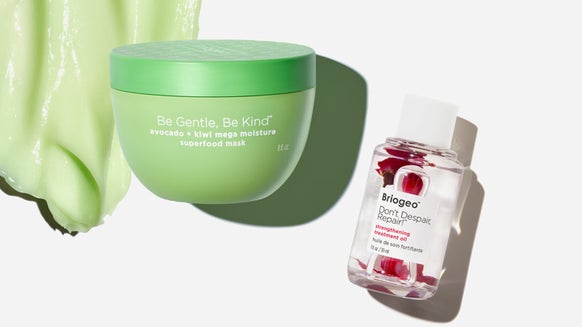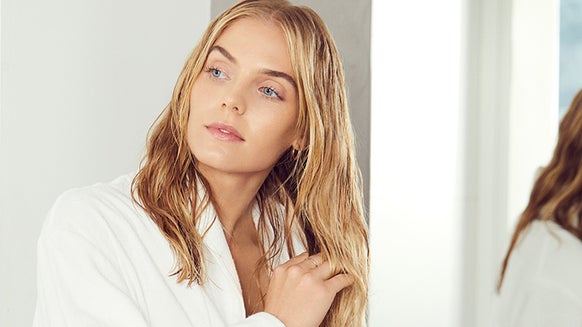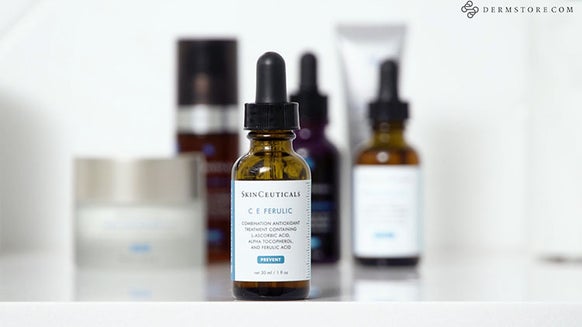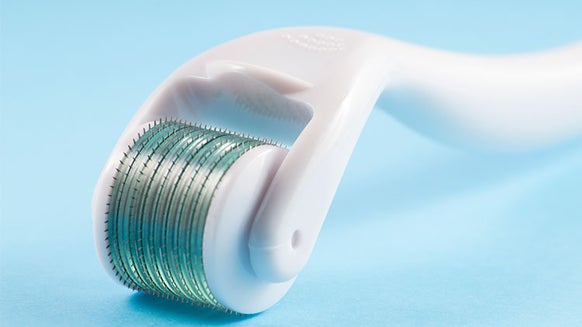How Often Should You Wash Curly Hair?
Can washing curly hair too often actually do more harm than good? To shed light on this matter, we tapped Shari Harbinger, co-founder of The DevaCurl Academy. With over two decades of experience in the curly conversation, DevaCurl is passionate about understanding and celebrating the uniqueness of wavy and curly hair. Here, she gives us the lowdown on traditional shampoos--plus, a few expert tips on how to take care of our curly hair.
Dermstore: We’ve heard that not shampooing your hair can actually be beneficial. Is this true?
Shari Harbinger: Shampooing can mean different things to different people, depending on their product of choice. At DevaCurl, “shampoo” does not exist in our brand. We removed the “poo,” or the harsh dehydrating detergents from our products and refer to our sulfate-free, botanically infused products as “cleansers” and NOT “shampoo."
SH: Sulfate-derived ingredients are the main culprit. Any cleansing ingredient that strips the hair of its natural moisture balance is a no-no. This often leads to dehydration, itchy scalp, dry and lackluster hair.
Sulfate-free and conditioning cleansers like DevaCurl’s No-Poo and Low-Poo are gentle enough for daily use and are a great alternative to conventional shampoos. No-Poo and Low-Poo cleanses the hair and scalp while removing dirt particles and buildup, which is essential to hair health–all while keeping your natural moisture balance intact.
D: How often should one wash, shampoo or cleanse their hair? Does a person’s hair type matter in terms of frequency?
SH: If you opt for conventional shampoos, I don’t recommend shampooing every day since most contain dehydrating ingredients. Any formula with sulfates is too harsh on the gentle fabric of the scalp and curls and strips away moisture. When we refrain from frequent use of these shampoos, the hair and scalp have a chance to recalibrate and restore its natural moisture balance.
Hair type, lifestyle and the ingredients in your styling products will determine the frequency of how often you should cleanse your hair. With DevaCurl, cleansing is encouraged as often as you feel it is necessary. We really stress the importance of massaging the scalp when applying and rinsing out the cleanser.
Wavy Hair: This texture tends to be cleansed and conditioned most frequently. Wavy hair types benefit from formulas with weightless moisture to keep the frizz away while adding fullness, body and texture. Curly Hair: Often benefits from formulas with a good amount of essential moisture as the goal is to achieve frizz free results, which require curl hydration. Super Curly Hair: Often benefits from formulas with lots of moisture to prevent breakage and dryness. This texture requires cleansing on a weekly basis and more conditioning.
D: Any other tips on how to keep your hair clean and healthy?
SH: Cleansing is the act of vigorously massaging the scalp and flushing the hair to remove dirt and buildup. Water and friction can cleanse. But water, friction and a sulfate-free cleanser cleanses while infusing additional moisture that textured hair craves.
Another tip is to check the ingredients in your conditioner and styling products, as silicone and heavy oils are buildup culprits that require you to cleanse more frequently. All DevaCurl products are 100% sulfate-, paraben- and silicone-free and we recommend looking for products that avoid these ingredients to best care for curls and extend the time between cleansing.

From the latest hair and makeup trends to the best solutions for your skin issues, we've got all your beauty concerns covered!







